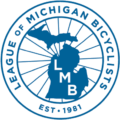I really like both arguments here... This is classic state rights vs big government intervention.
I want to say that I see both sides of the coin - and the ebike community needs to grow in order to force municipalities to make consequential decisions on this issue. For now, numbers are too low (though growing fast) for city officials to prioritize this issue.
Outreach is important, for more long-term success and to promote growth. But as far as regulations are concerned - I think push back is important in order for officials to value our side of the story. A lot of times officials go with the "path of least resistance".
My arguments would be why they ban skateboards but not regular bikes? And then use that same logic to ask why they think an ebike is so different from a bicycle.. it sounds like they have a lot of bias in what they decided to allow and have never had experience with most of these...if you can make them see the fallacy of a blanket term, and how it actually discriminates against ebike users, it would force some debate. I don't think it will change anything though - but might lead to some compromise.
Also, the biggest hole in their argument is we are banning ebikes everywhere, because it's consistent more or less. This doesn't pass the safety litmus test - if they are allowing ebikes now in Tucson. They are saying 2 contradictory statements.. how can ebikes be safe to use here in the city but not on the city's bike path? Why are we applying city laws in bits and pieces?? It's not a very sound reason to forgo their own city laws allowing bikes in the tuscon city, just to keep "consistency" with a completely different city's law... how does that equate to safety?
Edit: I just wanted to say that it's ultimately In their jurisdiction and as the owners they have the right to make the bylaws to these things. But my point is we need to show them that they can't hide with a PR "it's safer" campaign. We have to require more dialog with them so that they know there is enough of an ebike lobby to warrant a debate. Otherwise, we will sadly loose the local / state / and national conversation on this issue.
Edit 2: sorry last one. I wanted to say as ebikes gain traction and more people become familiar with them (similar to what was shared above) - that also will help our case in showing how FUN and SAFE ebikes are

.


